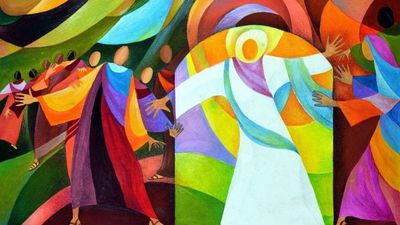9th Sunday after Pentecost
The world can be a dangerous place, and we all long for someone, some leader, who will watch over us and protect us from all harm. The prophet Jeremiah issues strong cautions to those who abuse the trust placed in them to care for God’s people, and the psalmist sings the praises of the Lord who guards and guides us through life’s trials.
But the letter to the Ephesians suggests that lasting safety comes through the healing and reconciling work of Christ, which allows us to share a meal with those we are inclined to regard as enemies, because Christ has “broken down the dividing wall, that is, the hostility between us.” So, in Christ, aliens become citizens and strangers become members of the household of God.
Living into this reality requires all of us to be diligent in our practices with and policies toward all kinds of “strangers and aliens” in our world and in our lives. It means making peace with those whose politics make them strange to us, and creating genuine welcome for the newcomer in our classrooms, workplaces and congregations. It means considering the needs of immigrants and refugees through the lens of Christian faith as well as national identity, and not assuming the two are the same.
The reassuring news this day is that God, unlike so many who hold power in this world, is already reconciling the world to God’s own self and us to one another. We enact this new reality each time we pass the peace or come to the Lord’s supper, not because we have finally achieved the peace we seek, but because in Christ God’s future reign of peace has already broken into our present.

